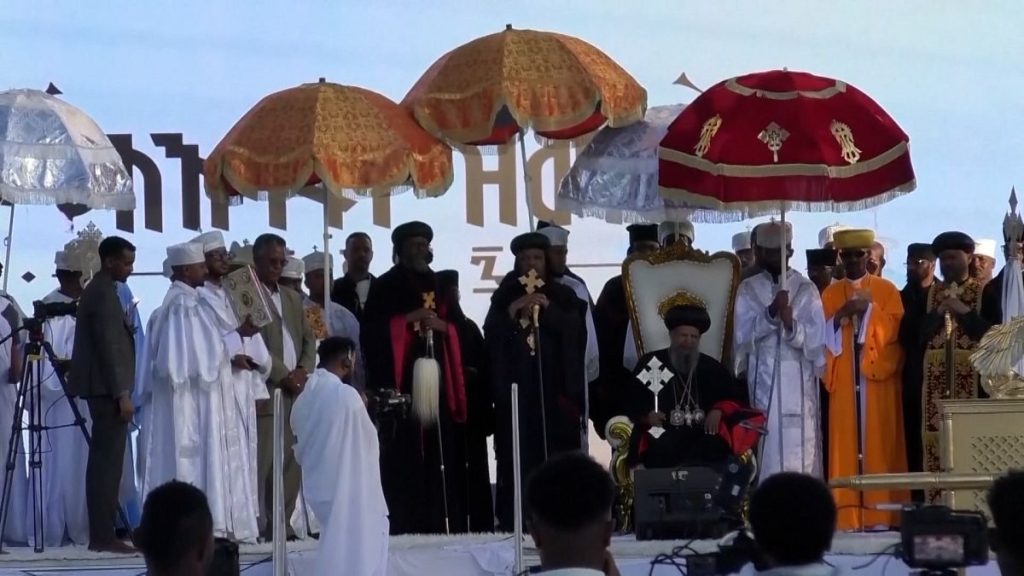Ethiopia’s Genna, also known as Ethiopian Christmas, is a vibrant celebration observed on January 7th, following the Julian calendar. This unique observance distinguishes it from the Gregorian calendar Christmas celebrated on December 25th by most of the world. The holiday holds profound religious significance for Ethiopian Orthodox Tewahedo Christians, who constitute the majority of the population, and is steeped in rich cultural traditions passed down through generations. The celebration is a tapestry of faith, family, and community, marked by distinct customs, rituals, and a palpable spirit of unity and generosity.
The heart of Genna celebrations lies in the religious observances. Dressed in traditional white garments, symbolizing purity and spiritual renewal, Ethiopians attend special prayer services and midnight mass. Churches across the country come alive with the melodic chanting of hymns and the scent of incense, creating a deeply spiritual atmosphere. The unique liturgy and rituals of the Ethiopian Orthodox Tewahedo Church, one of the oldest Christian churches in the world, are on full display. The faithful gather to commemorate the birth of Jesus Christ and reaffirm their devotion. The atmosphere is one of reverence, reflection, and spiritual rejuvenation.
Beyond the religious services, Genna is a time for families and communities to come together. Traditional feasts, often featuring special dishes like Doro Wat (spicy chicken stew) and Injera (a spongy flatbread), are prepared and shared. Genna is not just about personal celebration but also emphasizes sharing with those less fortunate. Acts of charity are commonplace, with families distributing food and gifts to the needy, reflecting the spirit of compassion and community inherent in the holiday. The celebrations extend beyond blood relations, encompassing neighbors and friends, reinforcing the strong social fabric that characterizes Ethiopian society.
The historic rock-hewn churches of Lalibela, a UNESCO World Heritage site, play a crucial role in Genna celebrations. These unique monolithic structures, carved out of solid rock in the 12th and 13th centuries, attract thousands of pilgrims each year for the Christmas festivities. The churches, each with its own distinct architectural design and religious significance, serve as a powerful testament to Ethiopia’s rich history and spiritual heritage. The gathering of pilgrims at Lalibela adds another layer of significance to the celebration, creating a sense of shared experience and reinforcing the cultural importance of these ancient sites.
Even in the face of adversity, such as recent earthquakes that have caused displacement and hardship, Ethiopians have demonstrated remarkable resilience and continued to celebrate Genna with unwavering spirit. The celebrations serve as a source of strength and hope amidst challenging circumstances, reminding people of the enduring power of faith, community, and tradition. The ability to find joy and maintain cultural practices even in times of difficulty speaks volumes about the resilience and deep-rooted values of the Ethiopian people.
Genna in Ethiopia is more than just a religious holiday; it is a vibrant expression of cultural identity, a celebration of community, and a testament to the enduring strength of faith and tradition. It is a time for renewal, reflection, and rejoicing, a time to honor the past and embrace the future. The distinct traditions, the religious fervor, and the emphasis on unity and compassion make Genna a truly unique and significant celebration in the Ethiopian calendar. It serves as a powerful reminder of the enduring human capacity for faith, resilience, and the importance of maintaining cultural heritage in a constantly changing world.














